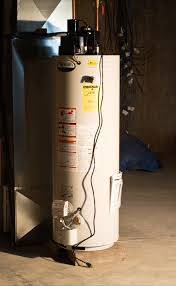Signs That Your Water Heater Is Going Bad

As much as you would hope, your home’s water heater is not going to last forever. Even the newer tankless models wear out eventually, and it is always a good idea to detect the signs of failure before things get bad. Needless to say, conventional tank-equipped water heaters pose greater safety hazards when on their last leg, particularly since they house a constant, large supply of water at all times.
Imagine coming home to a flooded basement. That is exactly what can happen if you avoid the noticeable symptoms for too long. To avoid the hassle, the headache and the damage on your wallet, here are the tell-tale signs of a water heater that should be replaced ASAP!
Is Your Water Heater Dying?
Since the sole purpose of a water heater is to provide hot water, a lack of it means something is obviously wrong. This may not necessarily be a worst-case scenario as something as simple as a faulty pilot light can be the cause, but nonetheless, it should raise a red flag.
If you detect rust in your water, it signifies the tank has begun falling apart. The presence of sediment and debris buildup should also be a source of concern as this means the built-in filtration system has stopped working. Likewise, water that has a metallic taste and/or smell can typically be traced back to a damaged water heater. It is normal to hear a bit of noise when the device is functioning, but an excessive amount of clanking may mean the internal heating elements are experiencing serious defects.
It goes without saying that any water leaks should be addressed immediately. A small stream can quickly turn into a flood if you are not careful, so do not hesitate to turn the water heater off and disconnect both the electrical and incoming water supply. After doing so, give the team at Empire Heating and Air Conditioning a call!
Even if there are no detectable issues right now, the age of your water heater is always something to note. Most conventional types last between 10-15 years, while their tankless counterparts have a longer lifespan of about 20-25 years. Upgrade before these symptoms develop. Being proactive saves time and money!

